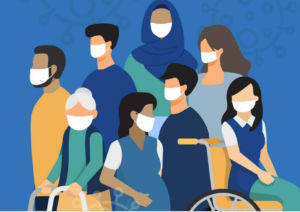 In response to the novel coronavirus (COVID-19) pandemic and the relatively limited data available, the UN Women Regional Office for Europe and Central Asia developed a rapid survey, through the Making Every Woman and Girl Count global programme, to assess the gendered impacts of COVID-19 on women and men.
In response to the novel coronavirus (COVID-19) pandemic and the relatively limited data available, the UN Women Regional Office for Europe and Central Asia developed a rapid survey, through the Making Every Woman and Girl Count global programme, to assess the gendered impacts of COVID-19 on women and men.
The Rapid Gender Assessment (RGA) survey was rolled out between April and May 2020 in 16 countries/territories across the region. This report draws on RGA data collected in 10 countries/territories in the region: Albania, Azerbaijan, Bosnia and Herzegovina (BiH), Georgia, Kazakhstan, Kosovo, Kyrgyzstan, North Macedonia, the Republic of Moldova and Turkey. The sample size varies from 1,000 to 2,000 respondents depending on country population size. A more comprehensive RGA analysis encompassing data from all 16 ECA countries/ territories will follow.
The RGA survey findings are intended to be used by countries/territories to inform, guide and support response planning and address the gendered impact of the pandemic. Furthermore, it is intended to serve as a baseline assessment for faster and more gender-sensitive interventions if future outbreaks occur. Customized for the regional context, the RGA survey identified a minimum set of variables to be collected in the 16 countries/territories, covering demographics, employment and livelihoods, time spent on household activities, access to basic goods and services, and women’s safety, in order to understand the pandemic from a gender perspective. Data collection was done primarily through telephone interviews. In a few countries/ territories, rural households were reached through computer-assisted telephone interviews, and online surveys were used for urban households.
The sampling was based on lists of registered mobile and landline phone users in the target countries/territories. The sample size draws results at an aggregate level for each country/ territory and ensures representativeness by sex and main age groups (18–34, 35–64 and 65+). This information, along with other profile information on respondents, is available in the Annexes. UN Women would like to express its gratitude to the United Nations Development Programme (UNDP) and United Nations Population Fund (UNFPA), UN Resident Coordinators and other partners for supporting the RGA in several countries/territories across the region. Data collection at the country/territory level was also made possible through the generous support of the Governments of Canada, Norway, Sweden, Switzerland, and the European Union.



